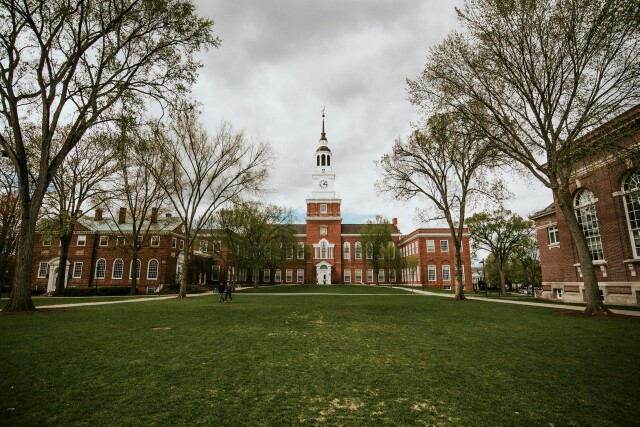Cutting Class: How College Degree Requirements Hinder Diversity

As students return to campus this fall, the advertising industry is trying to develop, attract and ultimately recruit a more diverse workforce by investing in HBCUs through donations and connections. These new efforts join longstanding advertising internship programs like MAIP that have tried to build a more diverse pipeline to help students of color transition from college to career. However, laudable though these efforts might be, their collective emphasis on the importance of a college degree overlooks how higher education has perpetuated a myth of meritocracy that has simultaneously cloaked white privilege while also providing a socially acceptable mechanism for the upper class to hoard and maintain power in advertising, corporate America and beyond.
Speaking on the Attribution podcast earlier this year, Richard Reeves, author of Dream Hoarders, explained how America's top 20 percent of income earning households, or what he calls "the favored fifth," rig the system for their own benefit. Whether it's zoning laws to protect real estate values, tax deductions to accumulate more wealth, or PTAs that funnel private money into a select few public schools, America's upper-middle class hoards the best futures for their own kids.
And, according to the Congressional Research Service, white households are twice as likely as Black households to be in that top quintile of income earners. In other words, 11 percent of white families earn over $200,000 per year versus only five percent of Black families. And this doesn’t account for the accumulation of wealth over generations which has resulted in the typical white family being worth, according to Brookings, almost ten times as much as the typical Black family. This Black-white wealth gap means that whites are much better positioned to use college as a cheat to inflate the value of a below average child.
As Reeves puts it: “The single biggest thing you can do to protect your child who's not very smart from being downwardly mobile is get them a four-year college degree. Because by the time employers find out this person is not that smart, it'll be too late. They're already on a professional track. And, meanwhile, there's lots of kids who are plenty smart who we don't get to four-year college because of all the barriers we put in their place, but the less smart one needs that four-year college degree as a credential to survive the labor market.”
I’m a college professor and, while I believe in the value of higher education, I’ve also had some of these kids in my classes. After all, admitting some full-fare tuition (no-FAFSA) applicants sure does help keep the lights on. And let’s not forget how the Varsity Blues scandal exposed just how easy it is for the elite to use legacy admissions, donations and even bribes to get their kids into complicit colleges and universities.
So, no, a college degree alone should not be seen as an objective indicator of merit. Nor should it be used by hiring managers as a lazy way to filter their applicant pool. A filter, by the way, that would have eliminated degree-less yet highly successful founders of communication, media and entertainment businesses like Anna Wintour, Tyler Perry and Rachael Ray. As an institution that tends to favor the white and wealthy, college is thus a more reliable indicator of class status than it is of talent and potential.
The good news is that momentum is building to cut college out of the hiring process. Three years ago, Ida Rezvani, now Chief Client Officer of dentsu Americas, argued in Adweek that “a college education isn't a necessity to work in advertising.” Two years ago, Oliver McAteer, now Director of Development at Mischief USA, asked in Campaign US why ad agencies still require talent to have college degrees when “only 33 percent of Americans aged 25 and over hold a bachelor’s degree or higher.” And, in 2020, theSociety for Human Resource Management (SHRM)opined that, “because Black job-seekers are less likely than white applicants to be college graduates, [26% and 40% respectively], college degree requirements hinder Black workers' earnings” and “career advancement.”
So, if advertising agencies are serious about acquiring more Black talent, then I hope they’ll allow this professor to assign some homework: direct your recruiters and hiring managers to pivot away from the favored fifth by lifting college degree requirements, focusing on skills instead of credentials, and expanding applicant pools to include a more widely representative labor force. Not only will this provide agencies with opportunities to bring on talent that can provide valuable insights into a broader swath of consumers, but it would also help cut down crusty class hierarchies, chip away at the Black-white wealth gap, and hasten a future of greater equality for all -- both at work and at home.
Click the social buttons to share this content with your friends and colleagues.
The opinions and points of view expressed in this content are exclusively the views of the author and/or subject(s) and do not necessarily represent the views of MediaVillage.com/MyersBizNet, Inc. management or associated writers.


